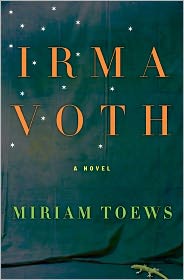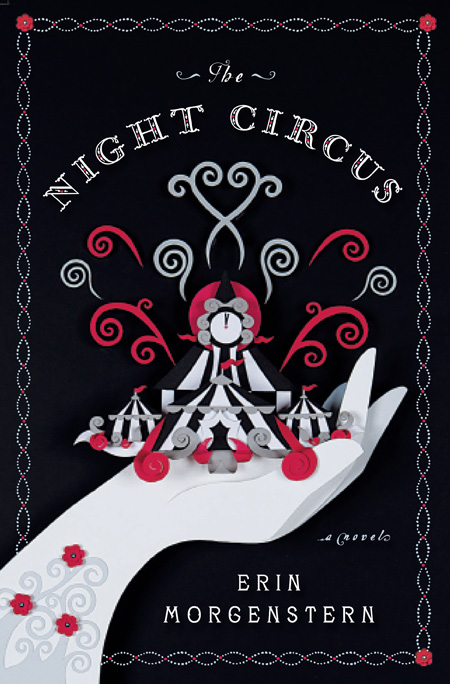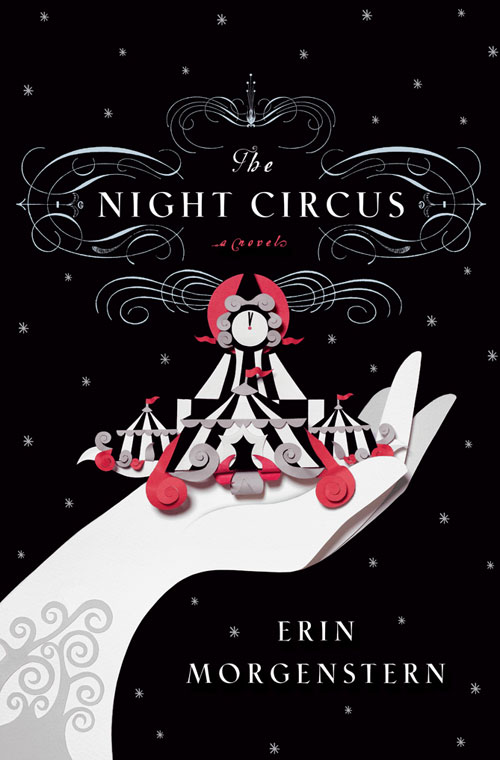This summer we took a break from meetings to reconvene with a barbecue/potluck supper last week. That is not to say we took a break from reading. Oh, no. We had decided in June that we, as a book club, would read
Secret Daughter by Shilpi Somaya Gowda, my personal recommendation as I loved it soooo much! If you'd like to take a moment to read
my review, please feel free to do so.
Most of us really enjoyed the book and we had a new member join us (yay J), which was a great deal of fun. And, may I say, combining food with book club makes for a delicious discussion! On the menu was butter chicken and rice (an Indian dish to go with the novel), quiche, a jello fruit salad, grilled farmer's sausage, and for dessert a lovely microwave cake recipe complete with chocolate sauce (yum!). As we had decided to bbq, if we desired, one member brought a steak too.
As we were part way through our meal, we began discussions, starting with Indian cuisine, of course! This led to discussion of the locale of the novel and so forth, but, before I go much further, let me give you just a little peak into my thoughts of this touching novel, taken from
my review:
"Shilpi Somaya Gowda weaves an extraordinary tale in Secret Daughter. From page one, the reader is captivated. Shilpi creates characters with incredible depth which allows the reader to develop a "relationship" and, totally immersed within the pages, the characters become real. Based on her heritage of India, the author introduces the reader to culture, society, and individuals who will remain with you long after you've read the book." (April 29, 2011, My Bookshelf)
***Spoiler alert***
As the novel begins, a young mother, Kavita, gives birth to her second daughter, which is tragic in a culture where boys are prized far more than girls. (I should insert here that Kavita's and Jasu's marriage was arranged by their parents) Kavita's inlaws look upon the birth of daughters rather than a son as Kavita's personal failure to provide a son for her husband. One of the book club members brought up that boys were considered an asset to the family, especially to the father, as a son would help work the fields and contribute to the well-being of the family as a whole through his labours. A daughter, on the other hand, wasn't deemed so valuable as she couldn't assist in the farm work (though they often did) and the family would be required to supply a dowry to her husband to be. Often, in this society, the girls were married off young.
We found ourselves comparing Secret Daughter with another book, Slumdog Millionaire, which shares horrific stories of the lives of the poor in India. It would seem the financially well off welcomed both male and female offspring, as the means to provide for both were plentiful; however, should a child be born into poverty, his/her fate could be of the worst imaginable kind including abuse and neglect. (This is not to say that this is the case always, as some, rich or poor, maintained a value of life.) As we discussed this most painful aspect of society shared in Secret Daughter, we thought of different countries throughout the world wherein the fates of the poor were dictated directly by their financial standings. We see this even in our local societies, but to a much lesser degree.
Returning to the novel, Kavita's first daughter was buried, after being handed off to Kavita's husband's relative to "dispose" of. It would seem that though Kavita's husband, Jasu, did not want a daughter, he could not bring himself to do the deed himself. As Kavita was only too aware of the destiny of another daughter, she would pretend her dead and then walk miles upon miles to offer her infant, whom she named Usha (later christened Asha), to the orphanage in Mumbai where she hoped she would find a good family.
Shortly thereafter, the family would travel to the city, in search of a better life. There they were forced to live in a shanty town, without fresh water and amenities, or proper policing. Jasu searched long for a job to better their lives and, though he did find one and they eventually left the shanty town for a small apartment and then eventually a larger dwelling, we questioned whether this was the best move for their family. It certainly presented opportunities for both good and bad and we see the consequences of these opportunities later in the book as Kavita and Jasu raise a son in finer conditions, but it also distanced them from family and exposed them to new "dangers". The contrasts of the poor and the wealthy are stark.
As Usha/Asha was adopted to an American couple, Krishnan of Indian heritage and Somer American, we noted the cultural differences between Somer (Usha/Asha's adoptive mom) and Krishnan (Usha/Asha's adoptive father) as their heritages become a matter of conflict, resulting in their separation. As Asha grows, and situations bring Somer to follow her daughter and estranged husband to India, we noted that both Somer and Krishnan had come to realize, at long last, the value of each other. A change of scenery, a new country, new circumstances all worked in their favour to bring their family closer together. Marriage is difficult. It is something that must be worked at in order to remain strong. In Secret Daughter, we all commented on how easily Somer and Krishnan had given up. In the end, it was their daughter and heritage and family values that brought them to the realization of love and desire for a loving bond together.
Truly a touching and enlightening read, we learned a lot about another culture, while gaining a further appreciation for values of family. I have to say, Secret Daughter touched each of us in ways we could not have predicted and will remain with us for quite some time.
*note: the thoughts and feelings discussed herein are of personal opinions. Neither prejudices nor insult are intended in this discussion.






























